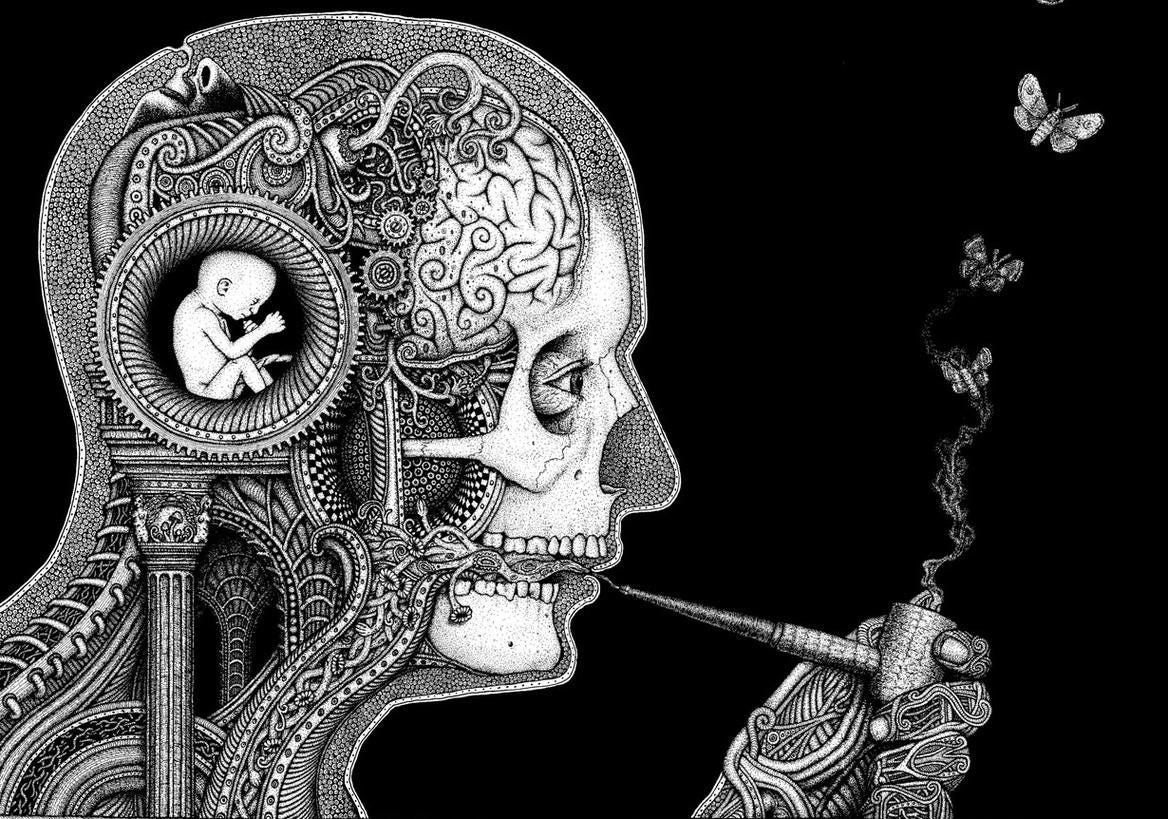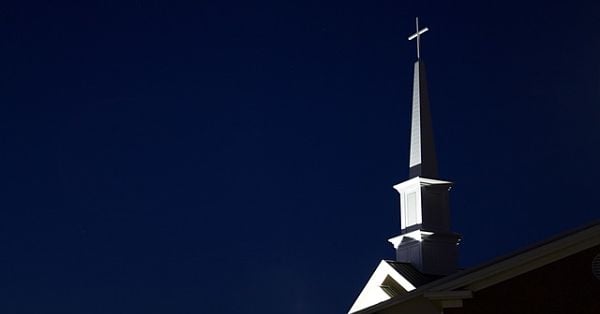Introduction
I will be updating and adding newer articles about process philosophy as I participate in a six week class on Alfred North Whitehead's understanding of the idea he developed with Charles Hartshorne resulting in his magnum opus, Process and Reality. Here, among other observations, Whitehead's time-event structure is related to what makes our idea of time as "time". Too, Whitehead' process philosophy has also been instrumental in developing a foundation for contemporary discussions of "ecological civilizations" by it's emphasis on what we have overlooked for centuries - the uplifting of the nonhuman world all around us which is literally dying for us to remember it.
What about eternal objects? How do they related with processed events? Consider how Plato might relate to Process & Event ontological structures. Traditional church doctrines have been based on neo-Platonism for centuries. Yet, can Holiness be defined in Platonic terms of the "Eternal Objects" or can it be better expressed in Process Theology's idea of the "Creational Event"?
Here is why the theology of process-based panentheism better describes "the Holy" and how "the Eternal" derives its essence between the interplay of Being & Event. Admitting that God is God is one thing (in Platonic terms of the idealized form of the "Eternal"). But to know God as God can only be known through creational forms. Otherwise He is the Wholly Unknown Other we claim exists but with no ties to creation which proclaims He exists. Which experiences His existence. Which has life through His existence.
Consequently, the eternal object has no meaning without involvement - or generation - from within creation itself. It's not that creation defines God but that it gives to God the Godness we know in biblical terms and have tried to explain through time on the basis of Platonic ideas of holiness (or, otherness) to the Process forms of "Being and Event" (sic, the writings of philosopher Alain Baidou, AN Whitehead, and other process philosophers).
As such, without Whitehead's concrescence (sic, a growing together) describing the metaphysical conditions necessary for conscious experience, the idea of being and event becomes meaningless. In essence, moments of becoming conjoin with other moments of becoming as they perish and arise in newer moments of becoming within time's relational unfolding of being and event.
Rather than stipulating that Plato's eternal forms are preeminent realities of the world and that we are bit players in the eternal order of things Whitehead says eternal forms are rather deficient in actualizing reality without reality first arising from actual occassions within creation as it is experienced, or as it concresces towards becoming (being and event).
As such, what we experience is a bit of eternality gathered together in conscious arrays of experience telling us the story of God and His relationship to a creation full of life and response to its Creator God. We know God through our experience of the world. We cannot know God without this experience of the world. Process theology then goes on to say it is more meaningful to see God as part of His creation than as above and apart from it (Plato, sic theism). Thus the idea of process-based "pan-en-theism". Of a creation and a God which are conjoined together and imparting a moment by moment concrescense to the realtiy of the other in relational experience.
Matthew Segall sums it up this way:
"It is in concrescence that Whitehead's "eternal objects" come into play.... [But rather then being] identical to Plato’s forms [of eternal objects] ...Whitehead actually inverts Plato’s theory of forms. While for Plato, eternal forms are the preeminent realities [where] physical creatures are derivative copies or pale imitations [of the eternal], for Whitehead, eternal objects are “deficient in actuality” and depend entirely on the decisions of actual occasions [of creation] to make any difference in the world." - MT Segall
Lastly, is God dependent upon creation for His existence? Nay. But this is not what we're saying. If God had no relation to creation He has Himself alone which the bible says He was dissatisfied with; that He wanted more; that He needed a growing, evolving fellowship beyond Himself which would provide even greater concresence to His reality than before. God then is the eternally restless Other who desires to share all of Himself in fellowship with His creation. Otherwise, as an eternal object, there is a sterility in divine living set apart from unfolding worlds of eternal becoming. We are because He is. Creation reflects the God of Creation. But it also grants foundation to God's Being in ways He never had before through eternal evolving event.
R.E. Slater
R.E. Slater
March 17, 2020

What is process philosophy and
Who is Alfred North Whitehead?
A conversation with Matthew T. Segall
Whitehead is an unusual figure in western intellectual history: revered, studied and debated heavily in certain circles, but largely unknown today outside the specialized fields of philosophy and mathematics.
Anyone who decides to delve in to the world of Whitehead would agree that he was a prodigious figure in the history of ideas, even though relatively few people would presume to have understood much of his body of work.
He is best known today for two things: first, the quote: “The safest general characterization of the European philosophical tradition is that it consists of a series of footnotes to Plato.” In fact, my interviewee in this dialogue, Matthew Segall, has a blog called Footnotes2Plato.
Whitehead’s second well-known contribution is the three-volume Principia Mathematica, with Bertrand Russell and published from 1910 to 1913, which is a highly technical work that attempted to put all of mathematics onto a firmer foundation by reducing it to a formal logical system from which all mathematical truths could be derived. That effort ultimately failed, but that’s a different story than our focus here.
Whitehead’s late career was devoted to what he called “speculative philosophy,” essentially system-building philosophy that attempted to provide a system of the world that was coherent (not self-contradictory) and adequate to the facts of science as well as to human experience. He wrote a series of books starting in the early 1920s that, while not as difficult as Principia Mathematica, are still known for their difficulty and multitude of possible interpretations. His 1929 Process and Reality is considered his magnum opus and most difficult philosophical work.
It’s a journey to try and understand Whitehead and I’ve been greatly aided by David Ray Griffin’s works that explain and expand Whitehead’s works, including the:
- 1998 Unsnarling the Worldknot,
- 2001 Reenchantment Without Supernaturalism, and
- 2008 Whitehead’s Radically Different Postmodern Philosophy
Matthew Segall, Ph.D. is assistant professor at the California Institute of Integral Studies in San Francisco where he teaches on German Idealism and Process philosophy in the Philosophy, Cosmology, and Consciousness program. He has authored a number of books, most recently Physics of the World-Soul. I met Matt a number of years ago through online discussions about evolutionary theory and process philosophy and we’ve had various conversations over the years and met in person a few times, which led eventually to the present interview.
The proximate cause of this discussion was my earlier interview with Carlo Rovelli about the nature of time in modern physics. Matt saw some promise in Rovelli’s suggestion that events should be considered the basic entities of modern physics, which is a position that Whitehead would agree with. However, as we see in my interview with Rovelli, he doesn’t acknowledge Whitehead as being an influence for this idea.
Matt and I follow up on some topics raised in the Rovelli interview, including in particular the nature of time in Whitehead’s process philosophy, and various aspects of process philosophy more generally. My hope is that this dialogue presents a good brief introduction to Whitehead’s philosophical thought, while touching on the depth of the discussions about the nature of time in relation to modern physics and philosophy, and also, finally, demonstrating that Whitehead’s system is rich, complex and certainly open to interpretation and amendment in various ways.
I have considered myself a “Whiteheadian” for some time now, since discovering his philosophical work a bit more than a decade ago. However, as we see below there are some aspects of his philosophy that I have a hard time with and I’ve been working slowly on a revised version of process philosophy that adopts much of Whitehead’s approach but tries to simplify and further “naturalize” his impressive intellectual edifice.
We conducted the below interview via email in early 2019.
Why is Whitehead relevant today, to both the layperson, and in physics and the philosophy of physics?
Whitehead was one of the first initiates into the new cosmological story that, with any luck, will help us build an ecological civilization in the coming decades.
The advances in philosophy of nature and discoveries in natural science that occurred during the 19th and 20th centuries (e.g., Schelling, Humboldt, Darwin, Einstein, Bohr, Bergson, Whitehead, et al.) were even more revolutionary than those made by Copernicus, Galileo, Descartes, and Newton in the 16th and 17th centuries.
If we take a Whiteheadian lens on the contemporary natural sciences, it becomes clear that 21st century people are living in an entirely new world, a [chaotic and random] self-organizing cosmogenesis that is nothing like the mechanical clockwork universe imagined by 17th century scientists. The problem is, hardly anybody — laypeople or physicists — realizes that we are living in this new universe! We are so mesmerized by the old mechanical model of Nature and by the technological toys it has allowed us to invent and surround ourselves with that we’ve lost touch with the nonhuman world that is literally dying for us to remember it.
______________________________________________________
Would you describe yourself as a Whiteheadian traditionalist? Or are there any aspects of Whitehead’s system that you would change?
______________________________________________________
Would you describe yourself as a Whiteheadian traditionalist? Or are there any aspects of Whitehead’s system that you would change?
I think Whitehead understood metaphysics as an open-ended project, so I engage with his work in the spirit of a co-inquirer. I would describe myself as a Whiteheadian, but there are plenty of ways that I diverge from “traditional” readings of Whitehead. If something in his scheme of abstractions doesn’t fit with my own experience and understanding, I first interrogate his writing more deeply just to be sure I am not misinterpreting him. But once I’m satisfied that I am not misunderstanding, I am perfectly willing to adjust his scheme accordingly. For example, his concept of God’s function in the universe is, by Whitehead’s own admission, incomplete. In my dissertation, I took some liberties in re-interpreting the process God in more pluralistic terms, such that each cosmic epoch has its own divine occasion, with certain characteristics being inherited by subsequent epochs.
______________________________________________________
______________________________________________________
Who do you regard as the most helpful intellectual descendants/students of Whitehead, thinkers who can both help us understand what the heck Whitehead meant in his sometimes opaque prose, or thinkers who have helpfully extended Whitehead’s system?
John Cobb, Jr. and David Ray Griffin should be mentioned first. They have and continue to contribute tremendously to Whitehead’s legacy, and to helping us make sense of his sometimes difficult ideas. I have not spent much time myself with Charles Hartshorne’s work, but he has also been very influential. More recently, thinkers as diverse as Catherine Keller, Isabelle Stengers, Bruno Latour, and William Connolly have taken up Whitehead’s work and applied it in illuminating and important ways to, e.g., mystical theology, geopolitics, and the sociology of science. The philosopher Peter Sjostedt-H has also done some fascinating work on the relevance of Whitehead’s philosophy to the interpretation of psychedelic experience.
______________________________________________________
______________________________________________________
Whitehead’s process philosophy is so named because it focuses on process, a succession of states, as the central feature of reality. Yet there are some aspects of Whitehead’s philosophy that are largely and perhaps wholly outside of time, such as “eternal objects” that are akin to Plato’s forms. How would you (succinctly) describe the nature of time in Whitehead’s philosophy in relation to the time of human experience?
I’ll be as succinct as I can be, but this is a complicated question! Whitehead was one of a number of early 20th century thinkers (including William James, Edmund Husserl, and Henri Bergson) who zeroed in on time, process, or becoming as a crucial nexus point that might help reconnect human experience with the natural world known to science. Whitehead was not influenced by Husserl so far as I know, but he was certainly an inheritor of James’ radical empiricism and Bergson’s vitalism. But he did not inherit from them uncritically.
I hope it is not an unfair summary of his criticisms to simply say that he rejected James’ nominalism and Bergson’s anti-intellectualism. That said, he inherited enough from Bergson that he would likely be uncomfortable with your characterization of process as “a succession of states,” since such a characterization may fall prey to what Bergson called the “cinematographic” tendency of the intellect, whereby the continuous flow of time is broken into discrete states, instants, or still frames that are then supposed to generate a sort of cartoon illusion of movement in the flip book of our conscious experience.
Like Bergson, Whitehead entirely rejected the materialistic idea of “Nature at an instant.” This idea is as central to Newton’s absolutist view of space and time as it is to Einstein’s relativistic conception of space-time. Whitehead follows James and Bergson in denying that it has any reality whatsoever. It is a mere abstraction used for convenience in the measurements and equations of physical models. Concrete time cannot be captured by such models because it always has duration. All attempts to measure duration necessarily erase what is essential to it. Duration is pure succession, in Bergson’s terms, which is to say that it is a continuous transformation and not merely a series of translated spatial states.
The point here is not to give up measuring and calculating. Science can go on doing what science does. Following Bergson, Whitehead simply wanted to remind scientists that they should avoid committing his famous “fallacy of misplaced concreteness” by never forgetting that the measurements made by clocks, though convenient for physical models and for the coordination of civilized life, falsely spatialize the flow of temporality.
All that said, Whitehead had more hope than Bergson that the scientific intellect could be reformed so as not to falsify the creative becoming of Nature in its abstract models. His notoriously complex metaphysical system, the so-called “philosophy of organism,” [generally known as “process philosophy” today] is the result of his effort.
I can understand why you would characterize Whitehead’s view of process as “a succession of states,” since he does in fact articulate an “atomic” or “epochal” theory of time, whereby a historical route of atomic “actual occasions” or “drops of experience” constitutes the continuous flow or stream of our consciousness. These occasions “arise and perish” in Whitehead’s terms and are not simply identical to the unbroken flow of conscious time, nor are they static instants. Whitehead thus challenged Bergson’s idea, mentioned above, of duration as “pure succession,” since the duration of Whitehead’s actual occasions is not pure but a mixture of spatial and temporal (as well as eternal, as we will see) ingredients.
Whitehead asks us to imagine two distinct types of process: the first is “transition” (roughly equivalent to Bergson’s “duration”), which is the continuous time of our conscious experience, and the second is “concrescence,” which is the epochal or punctuated becoming of actual occasions.
Concrescence is Whitehead’s neologism for what occurs within each drop or occasion of experience as it arises and perishes. Whereas transition provides an empirical account of what we experience in consciousness, concrescence is a speculative idea that is supposed to provide an explanation of the metaphysical conditions necessary for conscious experience. In other words, concrescence is Whitehead’s account of what is going on under the hood of consciousness.
It is in concrescence that Whitehead’s “eternal objects” come into play. They are the “forms of definiteness” or “pure potentials” that constitute the character of what each occasion experiences. Eternal objects can be mathematical or sensual in nature (e.g., circularity, twoness, a particular shade of redness, and saltiness are all examples of eternal objects). Whitehead tells us that they are required for our experience of Nature and not emergent from it.
So far, they sound identical to Plato’s forms, but Whitehead actually inverts Plato’s theory of forms. While for Plato, eternal forms are the preeminent realities while physical creatures are derivative copies or pale imitations, for Whitehead, eternal objects are “deficient in actuality” and depend entirely on the decisions of actual occasions to make any difference in the world.______________________________________________________
Can we achieve an improved version of Whitehead by eliminating eternal objects, as some thinkers have aspired to do? Or does the whole edifice fall apart if we remove this concept from Whitehead?
There have been several attempts to eliminate eternal objects from Whitehead’s process-relational ontology. In my opinion, the two most interesting recent examples are Ralph Pred’s Onflow (2005) and Mark Hansen’s Feed-Forward (2015). Along with eliminating eternal objects, they also try to eliminate Whitehead’s concept of God. Let me clearly state that these are both excellent philosophical works worthy of close study by all Whiteheadians and by anyone interested in the deepest questions we can ask about human consciousness and the technological environment we find ourselves increasingly embedded within.
And let me state just as clearly that Whitehead’s process-relational ontology falls into incoherence as soon as eternal objects and God are removed. Eternal objects and actual occasions are the magnetic poles powering the explanatory dynamo that is Whitehead’s metaphysical scheme. I’ve argued at length elsewhere that those who attempt to do without eternal objects (perhaps because they believe they have no places in a supposedly “processual” ontology) while still deploying Whitehead’s other categories only end up re-inventing the wheel and calling it something else. It’s like trying to break a magnet to remove the negative pole: you just end up with a new negative pole at the broken end. I have no problem whatsoever with thinkers who want to develop their own process ontology, but if they want to build on Whitehead’s work, it just doesn’t make sense to talk about actual occasions without eternal objects.
______________________________________________________
You stated that actual occasions (Whitehead’s atoms of actuality) are “not states or static instants,” but isn’t it the case that the passage of time in Whitehead’s system is indeed a series of actual occasions, at every level of reality, which are states but not static instants (I didn’t invoke any static features in my question)? This is the shared character of Whitehead’s concrescence, “perpetual perishing,” the “creative advance” and more generally Whitehead’s strong emphasis on becoming [PR, xiv, 22]. As such, shouldn’t we characterize the passage of time in Whitehead’s system as a result of a series of instants or snapshots, at every locus of the universe, which are always changing, but still instantiating as “actual” in an eternal oscillation between actuality and potentiality?
______________________________________________________
You stated that actual occasions (Whitehead’s atoms of actuality) are “not states or static instants,” but isn’t it the case that the passage of time in Whitehead’s system is indeed a series of actual occasions, at every level of reality, which are states but not static instants (I didn’t invoke any static features in my question)? This is the shared character of Whitehead’s concrescence, “perpetual perishing,” the “creative advance” and more generally Whitehead’s strong emphasis on becoming [PR, xiv, 22]. As such, shouldn’t we characterize the passage of time in Whitehead’s system as a result of a series of instants or snapshots, at every locus of the universe, which are always changing, but still instantiating as “actual” in an eternal oscillation between actuality and potentiality?
I don’t think it is Whitehead’s intention to say that the passage of time is a series of instants or snapshots. Such instantaneity can be approached via mathematical abstraction, but actual passage or creative advance is a process that moves from occasion to occasion in a network of relations, not a series of point-instants on a graph. Actual occasions are just that: occasions, or in Bergson’s terms, durations. I don’t see how a static instant could be experiential. Whitehead’s actual occasions of experience each exist “stretched out” in a sort of sublime tension, what James called a “specious present,” wherein the already actualized past is inherited and subjectively synthesized with potential futures.
An actual occasion’s final phase of becoming is called its “satisfaction,” which is the decisive moment wherein the occasion collapses the field of potentials into a unique form of actualization. This actualization is the achievement of a novel experience of value, “novel” in that with the becoming and perishing of each actual occasion a perspective on the universe is achieved that has never existed before. This perspective, once perished, becomes “objectively immortal” and is taken up by subsequently concrescing actual occasions. This arising and perishing of actual occasions forms what Whitehead calls a historic route or “society,” and it is at this level that what we consciously experience as the flow of time emerges. I do like your characterization of this process as an “eternal oscillation between actuality and potentiality,” but I don’t think the occasional beats composing the oscillation are instantaneous.
______________________________________________________
______________________________________________________
Building on our agreement that the passage of time may be characterized as an oscillation between actuality and potentiality, an instant in modern physics can have some minimum duration, such as the Planck time (5.4x10^-44 s), in the same way that energy or space can have a minimum quantity (this is the “quantum” in quantum mechanics). So is time for Whitehead not built as a nested hierarchy of these minimum instants, with each actual occasion constituting an instant or multiple thereof, and the universe built from the set of all actual occasions concrescing in each phase of the creative advance into novelty [PR 29 “The ancient doctrine that ‘no one crosses the same river twice’ is extended”]? Whitehead does posit non-temporal aspects of each concrescence, as you point out, but each concrescence itself is temporal through and through, right? So I think we’re generally saying the same thing?
There is a lot here to unpack. I would want to distinguish the physics of Planck time and Planck space from Whitehead’s metaphysics of actual occasions and their extensive connection. Whitehead would want us to tread very lightly in identifying his actual occasions with quantum events, since it may very well be the case that the latter are a special case of the former.
Regarding the notion of the universe as a “set of all actual occasions,” we also need to be careful. In their brilliant text The Quantum of Explanation: Whitehead’s Radical Empiricism (2017), Randall Auxier and Gary Herstein are careful to distinguish between two approaches to logically formalizing our thinking about such matters. While Whitehead did often use the term “set” in his writing about collections of occasions, this should not mislead us into a “set theoretical” way of thinking about the relations among actual occasions. Instead, Auxier and Herstein point to what has come to be called “category theory” as an alternative, and more Whiteheadian, way of thinking about the extensive relations among occasions, particularly when we try to think the cosmic socius as a whole. In short, while set theory focuses on abstract collections of entities and membership in groups, category theory allows us to think in terms of functions and relations, and in terms of the topological transformation of wholes and parts (i.e., mereotopology). Auxier and Herstein argue that category theory, as a form of spatial or topological reasoning, has a more empirical or experiential character, thus granting it deeper relevance in questions of ontology. So instead of thinking of all actual occasions as though they existed side-by-side as members of the group called “universe” advancing along some universal timeline, we must think of the cosmic “socius” of occasions as a complex network of open-ended activities, all internally related but also differentiated along multiple timelines. It is difficult, if not impossible, for our 3-dimensional imagination to picture a topological network of activities wherein each node or occasion is both a whole in itself, prehending the whole universe in its concrescence, and a part within the concrescence of other occasions. This is the sort of situation that category theory can formalize mathematically.
Concrescence is neither wholly eternal nor wholly temporal. It is an amphibious, boundary-dissolving account of the way potentiality becomes actual. Concrescence is Whitehead’s explanation for how potentials achieve actualization through the portal of a sort of temporal eternity or eternal moment, the creative repetition or oscillation of which is responsible for generating the spatial and temporal world as we normally experience it.
It is also important to remember that the universe as a whole is, in Whitehead’s terms, an “essential incompleteness,” as it is never finished or fully present but always advancing into novelty. To capture this, I sometimes expand and reform Einstein’s space-time “fabric” analogy by saying that space-time is always fraying and needs to be continually re-woven with each concrescence.
______________________________________________________
______________________________________________________
Isn’t Whitehead’s system in key ways in opposition to Einstein’s notion of spacetime? Isn’t this a key point of the “process” in process philosophy, that we need to accept the very real passage of time? Reconciling our experienced passage of time with the “block universe” and combined “space-time” of Einstein’s physics is, of course, a large outstanding problem with modern physics. One reason I find Whitehead’s approach appealing is that it presents a way out of this conundrum that Einsteinian physics seems to have gotten us into.
Whitehead accepted Einstein’s extension of some of the formulae related to electromagnetism to the concept of gravity. As a scientific theory, he was not disputing the usefulness of Einstein’s space-time model. His dispute with Einstein concerned the latter’s metaphysical interpretation of said model. Whitehead was concerned not only about the reduced status of time in Einstein’s eternal vision of the cosmos, but with the possibility of measurement in a space that, according to Einstein, was heterogeneous as a result of being warped by contingently arrayed mass. Accurate measurement requires rigid rulers. Unless we know in advance where all the mass in the universe is, we cannot be sure how our ruler (or its equivalent, light rays) may be bending in any attempted measurement, particularly if we are talking about astronomical distances.
The problem is that we cannot know in advance how mass is arrayed in the cosmos since that would require measurement. We are stuck, as Whitehead puts it, having to know everything before we can know anything. As part of his attempt to articulate precisely why he disagreed with Einstein, Whitehead produced his own tensor equations that did not rely on the idea of “curved” space but that nonetheless made equivalent empirical predictions as Einstein’s model (i.e., Whitehead’s formulae make the same predictions about Mercury’s perihelion, etc., and its variables could be easily modified to fit with any new observations resulting from more sensitive instruments).
As for time, Whitehead was in agreement with Bergson (who debated Einstein on this issue in 1922) that Einstein’s metaphysical interpretation of relativity mistook the abstract units of mechanical clock-time for the ontology of temporality. But unlike Bergson, who sometimes seems to have imagined that some universal flow of time underlies everything, Whitehead was perfectly clear that relativity theory destroys the idea of global simultaneity or universal time. Contra Einstein, he argued that time was perfectly real and not an illusion, but it is real only in a local sense related to unique historical routes of actual occasions of experience. So the Whiteheadian universe includes many distinct (more or less overlapping) time-systems. For this reason, I sometimes refer to a Whiteheadian pluriverse instead of calling it a universe.
______________________________________________________
______________________________________________________
Can you elaborate on why you think that Whitehead’s system would become incoherent without the inclusion of eternal objects?
Without eternal objects, there would no longer be any potential ingredient in the passage of Nature. The past and the future would become ontologically indistinguishable. Everything would already be actualized and there’d be no room for genuine creativity. All process would become locked in habit and repetition. Further, eternal objects are part of what allows actual occasions to be individual creatures rather than being indiscriminately merged together with every other occasion. Whitehead does view actual occasions as “internally related” and thus in some sense each occasion is dependent on every other occasion to be what it is, but it is the mediating role played by eternal objects in characterizing the “how” of experience that allows actual occasions to decide on unique subjective interpretations of the world rather than just directly inheriting the world as it is objectively given. Occasions can consider possible alternatives by ingressing novel eternal objects, thus inviting new potentials into settled actuality. Finally, eternal objects are what allow us to recognize and identify stable entities in what is otherwise a world of flux. What is it that you recognize in a friend or loved one as their distinct personality or character, something that sticks with them through many years of life despite other changes to their appearance?
______________________________________________________
______________________________________________________
You suggest that without eternal objects the past and future could not be distinguished. But if we eliminate eternal objects and ingression from Whitehead’s ontology we are left with actual entities and Creativity (as a general principle of potentiality or novelty [PR 21 “‘Creativity’ is the principle of novelty”]). Isn’t concrescence of actual entities, the sum of which is the creative advance into novelty, in addition to Creativity as the principle of potentiality becoming actual in each actual occasion, enough to provide all of these aspects of our experienced reality: 1) the experienced passage of time; 2) a physical passage of time more generally; 3) novelty; 4) a clear arrow of time that distinguishes between past and present?
No, I don’t think so. To fully answer this question, I need to bring in Whitehead’s concept of God again. If we eliminate the notion of ingressing eternal objects and God from Whitehead’s ontology, preserving only prehending actual occasions and Creativity, I am no longer sure what we could possibly mean by “concrescence.” God’s function in Whitehead’s ontology is to provide relevance to each occasion as it concresces out of Creativity. Without this mediating or filtering role, each occasion would be overwhelmed by the sheer infinity of potentials available for actualization in any given moment. God is Whitehead’s principle of limitation or concretion, and the graded hierarchy of eternal objects is Whitehead’s way of describing how infinite possibility is made relevant to each finite occasion’s experience. Further, it is precisely through the contrast granted by contact with eternity in each concrescence that an experience of passage arises. Without the contrast, without the punctuation of process by eternality, time would be experientially undetectable.
______________________________________________________
______________________________________________________
Why can’t physical prehensions of surrounding actual entities, in each moment of the creative advance, be sufficient for limiting the “infinity of potentials available for actualization”? I’ve suggested this kind of notion in my work on the mind-body problem, inspired by Whitehead, and it is based on the uncontroversial notion that actual entities can only include in each instantiation information that they can receive within the duration of each concrescence, limiting the actual entities that form each set of prehended data available to the new concrescing entity. Under this framework, each actual entity is still an ordering of Creativity, an actualization of pure potentiality, but there is no need to posit what seem like more religious notions of God or eternal objects beyond the pure potentiality of Creativity.
Whitehead did not include a concept of God in his metaphysical scheme for religious reasons. His God is a concept to be reflected upon and not a personal being to be worshipped (though of course God may become this secondarily for those who fully inhabit and live into his cosmology). Noting this up front is important, as it allows us (hopefully) to just focus on the philosophical issues at stake without dragging in all the emotional controversies associated with the battle between religious belief and secularity, etc. Whitehead specifically says in Process and Reality that he wants to “secularize the concept of God” and that this is one of the most important tasks for modern philosophy.
That said, it may be possible to account for the provision of relevance to each concrescing occasion of experience in the way that you suggest, via the physical prehension of past actualities in its environment. But then we are left with another problem, which is how to account for the novelty added by each occasion. If there is just physical prehension of the actualized past and no conceptual prehension of potentia (i.e., eternal objects), what prevents actual occasions from just repeating the experiences of the past ad infinitum? The question is not just about the relevance of each newly concrescing occasion to its inherited past, but the relevance of this past to potential futures. The provision of this relevance is necessary for a concrescence to decide how to actualize the potential value it is incubating. Even if we eliminate the role of God and eternal objects in determining the relevance of a concrescent occasion to its past, we still have to account for the determination of the relevant possibilities open to that occasion given its past. While the realm of actuality is finite, the realm of potential is infinite. So again, actual occasions would seem to need a little divine help here to avoid being overwhelmed by unlimited creative potential.
______________________________________________________
______________________________________________________
Various thinkers have tried to “naturalize” Whitehead by removing eternal objects, God or other aspects of his system that seem to some to be out of place or unnecessary. Donald Sherburne, one of the editors of the standard corrected edition of Process and Reality, and a serious Whitehead scholar, has proposed “Whitehead without God.” You are clear so far in rejecting attempts to eliminate eternal objects or God from Whitehead’s system, but what about inserting Creativity as a substitute for more non-religious notions of God like Source/Brahman/akasha, as thinkers like Huston Smith have argued (see, e.g., the great debate between Griffin and Smith in the book-length dialogue Primordial Truth and Postmodern Theology)? Under this amendment to Whitehead’s system, we retain Whitehead’s Creativity as the Ultimate and we can call it Source/Brahman, etc., as well as Creativity, since it is the ontological ground of being in Whitehead’s system. But we can eliminate God in its primordial nature (which is comprised of the set of all eternal objects), while retaining God in its consequent nature, as the high/highest level of a nested hierarchy of concrescing actual entities.
I am fine with folks coming up with whatever cosmological scheme they feel best captures the reality of their experience and understanding. But I don’t think we are talking about Whitehead’s scheme anymore if we remove God. Creativity is Whitehead’s category of the ultimate, while God is said to be the first creature of Creativity. God’s function here is to limit the unlimited. So strictly speaking, Creativity is not the ground of Whitehead’s ontology; rather, the primordial nature of God, as the principle of concretion or limitation, provides this ground. Creativity itself is a groundless abyss of pure potential, more a fountain than a foundation.
______________________________________________________
______________________________________________________
In terms of the discussion about mathematical discovery vs. invention, this is as you point out a longstanding debate. Many thinkers have taken the view that it is invention, which means that mathematical and similar truths are based on concepts that we create in our minds and manipulate to find new insights. So twoness, to use your example, is in this view an invented generality based on the observation that many things in our experienced world can be enumerated and compared, and in doing so given labels. A human 100,000 or more years ago probably realized that using her fingers to keep track of things in the real world was useful and then eventually gave labels to each numbered finger and by extension items in the real world that were labeled similarly. In this evolutionary approach to the development of language and mathematics there is no need to posit discovery of eternal objects in a realm only accessible to human reason. We also have good evidence that other animals have basic concepts of number; crows, for example, can count at least as high as three, with specialized cells in the brain, similar to how primates like us count. Are crows discovering transcendent mathematical truths or only using their evolved brains to create useful tools mapped on to their experienced worlds?
Whitehead’s eternal objects are not sequestered in a realm accessible only to human reason. They were ingredients in the creative advance of Nature long before humans showed up. Indeed, Whitehead tells us, “in the most literal sense the lapse of time is the renovation of the world with ideas” (Religion in the Making, 100). In Whitehead’s view, human reason does not even begin to comprehend the full breadth of the realm of ideal possibilities from out of which it has emerged and toward which it is passing.
Whitehead does not deny that other humans and animals exist on a cognitive spectrum, with some animals possessing very basic conceptions of number. In Modes of Thought, he describes watching a mother squirrel remove her young ones from a nest that had grown too small. She becomes distressed when she sees her children outside the cramped setting of the nest for the first time, running back and forth to make sure she hadn’t left anyone behind. This is because, according to Whitehead, she had only an indefinite or vague sense of how many children she had. She had no definite sense of number, in other words. Perhaps crows, clever as they are, have the ability to count higher than squirrels. Granting the cognitive continuum here, Whitehead still points to the advance achieved by humans, likely due to language: “Mankind enjoys a vision of the function of form within fact, and of the issue of value from this interplay. That day in the history of mankind when the vague appreciation of multitude was transformed into the exact observation of number, human beings made a long stride in the comprehension of that interweaving of form necessary for the higher life which is the disclosure of the good” (Modes of Thought, 77). So while eternal objects were ingredients in the evolutionary process long before humans showed up on the scene, our linguistic capacities do indeed grant us more definite conceptions of their distinct forms and mathematical relations. But our symbolic languages do not invent mathematical relations, they discover and express them.
______________________________________________________
______________________________________________________
In terms of your suggestion that it is eternal objects that allow us to identify loved ones over time, I don’t understand what you mean so can you elaborate on this further? Isn’t the constancy of their person and your recognition of that person the same as any changing pattern in nature in terms of steady change over time but with a general commonality over time (in Buddhist thought, this notion is a “continuant” as described in the Milindapanha)? Or are you suggesting there is some eternal essence that each individual enjoys that is an eternal object?
Whitehead wanted to give some explanation for how it is that in a world of process we nonetheless are able to recognize and identify definite characters or entities. We are out at sea and glimpse a whale just before it dives under the surface. A moment later, it explodes into the air. “There it is again,” we say. A simple enough observation, but Whitehead finds it metaphysically perplexing. Why are we justified in saying it is the same whale? I am not certain of the exact physiological details here, but scientists tell us that after some number of years every single atom in our body is replaced. Despite this complete material renewal, we are still somehow justified in claiming a sense of stable identity. Our matter changes, but our form endures. Whitehead talks about societies of actual occasions with “personal order,” and here he does not just mean the persistent identities of human persons but the persistent “serially ordered” identity of everything from rocks and trees to whales and skyscrapers. The serial personal order of a human being or a whale is constituted by especially intimately related historical routes of actual occasions of experience that repeatedly and collectively ingress a complex constellation of eternal objects. This unique constellation of eternal objects grants an individual human or whale its definite character or personality, experienced from within and recognized by others as in some sense a consistent identity despite its continual passage. Whitehead does not accept substantial notions of identity (“no thinker thinks twice,” he reminds us in Process & Reality), so he is forced to invent a processual account of this continuity, and the ingression of definite possibilities through historical routes of socially ordered actual occasions is how he attempts to pull it off.
______________________________________________________
______________________________________________________
But can’t a society of actual entities, as you and Whitehead discuss, accomplish this continuity over time (but always changing in each moment) without eternal objects? More generally, isn’t this kind of continuity over time what Whitehead means by “enduring objects” (which are different from eternal objects and are societies with “personal order”) [PR p. 34, 109]?
Whitehead is pretty clear, it seems to me, that what defines a society of actual occasions as an enduring object with personal order (personally ordered societies are a special case of enduring objects) is the complex constellation of eternal objects that these occasions repeatedly ingress through a historical route of genetic inheritance. The common form of any society of occasions, including personally ordered societies, is provided by the inherited constellation of eternal objects that sustains its definite characteristics.
______________________________________________________
______________________________________________________
More specifically, what does it mean to you that “saltiness,” an example you provide of eternal objects, is an eternal something that exists in a different realm than our manifest world? Aren’t these features of reality far more likely to be biologically evolved features of our universe that arose out of the specific conditions found on our planet? I personally have a hard time with positing such features of human reality and of reality more generally as unchanging “eternal objects”?
Saltiness is probably a complex eternal object, rather than a simple one that cannot be further decomposed. So it is not the best example to convince you of the metaphysical role of eternal objects. Mathematical objects almost certainly provide the strongest case for the necessity of something like Plato’s forms. You’ll never find “twoness” anywhere in the physical world. You’ll find endless examples of twoness participating in the physical world: two birds, two stones, two people, two fingers, two very different objects that you decide to group together for whatever reason, etc. But the idea of “twoness” itself is not captured by any of these specific instances. Where does it come from? Nominalists would say twoness, like other mathematical ideas, is just a name whose meaning derives from the conventional use of an arbitrarily invented symbol. But in my experience the majority of mathematicians, including Whitehead, would strongly contest this notion and claim that the history of mathematics is full of genuine discoveries that cannot be reduced to invented symbolisms. Yes, mathematicians need symbols to express their ideas, but there is more to the mathematical patterns and relations they discover than just these symbols.
A complex eternal object like saltiness is dependent upon the crystallization of sodium chloride molecules and the evolution of sensory organs and many other factors in order to ingress. Whitehead isn’t denying the importance and indeed the priority of these factors, but he was unable to conceive of a coherent metaphysical scheme that didn’t do justice to the realm of potentiality alongside that of actuality. “Coherence” for Whitehead means that neither potentiality nor actuality can be understood in isolation from the other.
______________________________________________________
______________________________________________________
How do we help spread a wider interest and understanding of Whitehead’s ideas? Are there any attempts to spread his ideas through, for example, primary school education (at a kid-friendly level)?
This is a really important question. I believe that the most developed effort on this front is coming from the Pando Populus organization, which emerged from the huge International Whitehead Conference held in Claremont, CA back in 2015 called “Toward an Ecological Civilization.” Most of their work is focused locally in Los Angeles at this point, but they also have plans aiming at a more global impact and already have a foothold in China (where there are something like 30 graduate programs devoted to Whitehead’s ideas).
I don’t know of any attempts to bring his ideas into primary school classrooms, but that sounds like a great idea! I would even be happy with just the story of philosophy and its most basic questions being taught in primary school. Whitehead’s panpsychist outlook is only a philosophically refined and attenuated form of animism, so it may already be common sense to most kids. That it is animate is an obvious fact about the world for childhood consciousness (and for most of our species’ 200,000+ year history: the disenchanted mechanistic view is only a few hundred years old). Kids have a much more intuitive grasp of basic metaphysical questions. Unfortunately, our innate curiosity about the hidden causes of everyday facts (“But why?”) is beaten out of us pretty early on by impatient adults. Bringing philosophy into primary school classrooms would really just be about encouraging the wonder and curiosity that is already everpresent in childhood. Sharing the best historical articulations of the Big Questions so that they take root in the imaginations of children might help shape them into more intellectually flexible adults who are capable of avoiding ideological fixation in the face of an overwhelmingly complex world.








